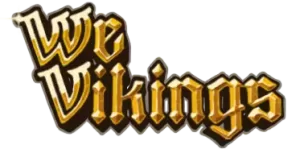
Helgakviða Hundingsbana I
Lay of Helgi Hundingsbane I
HEROIC LEGEND
1866 translation to English by Benjamin Thorpe from the original Helgakviða Hundingsbana (e. Lay of Helgi Hundingsbane), which is also known as Völsungakviða. The poem is preserved in the Codex Regius manuscript.
1.
It was in the times of yore,
when the eagles screamed,
holy waters fell
from the heavenly hills;
then to Helgi,
the great of soul,
Borghild gave birth
in Brálund.
2.
In the mansion it was night:
the Norns came,
who should the prince’s
life determine.
They him decreed
a prince most famed to be,
and of leaders
accounted best.
3.
With all their might they span
the fatal threads,
when that (he) burghs should overthrow
in Brálund.
They stretched out
the golden cord,
and beneath the middle
of the moon´s mansion fixed it.
4.
East and west
they hid the ends,
where the prince had
lands between;
towards the north
Neri’s sister
cast a chain,
which she bade last for ever.
5.
One thing disquieted
the Ylfing’s offspring,
and the woman
who had the child brought forth.
Sitting on a lofty tree,
on prey intent,
a raven to a raven said:
“I know something.
6.
Stands cased in mail
Sigmund’s son,
on day old:
now is our day come.
His eyes are piercing
as a warrior’s;
a wolf’s friend is he:
we shall rejoice!”
7.
He to the folk appeared
a noble chief to be;
among men ‘twas said
that happy times were come;
went the king himself
from the din of war,
noble garlic to bring
to the young prince;
8.
Gave him the name of Helgi,
and Hringstadir,
Sólfiöll, Snæfiöll,
and Sigarsvellir,
Hringstäd, Hátún,
and Himinvangar,
a sword ornate,
to Sinfiölti´s brother.
9.
Then grew up,
in his friends´ bosom,
the high-born youth,
in joyous splendour.
He paid and gave
gold for deserts;
nor spared the chief
the blood-stained sword.
10.
A short time only the leader let
warfare cease.
When the prince was
fifteen winters old,
he caused the fierce
Hunding to fall,
who long had ruled
over lands and people.
11.
The sons of Hunding
afterwards demanded
from Sigmund’s son
treasure and rings;
because they had
on the prince to avenge
their great loss of wealth,
and their father’s death.
12.
The prince would neither
the blood-fine pay,
nor for the slain
indemnity would give.
They might expect, he said,
a terrific storm
of grey arrows,
and Odin’s ire.
13.
The warriors went
to the trysting place of swords,
which they had appointed
at Logafiöll.
Broken was Frodi´s peace
between the foes:
Vidrir’s hounds went
about the isle
slaughter-greedy.
14.
The leader sat
under the Arastein,
after he had slain
Alf and Eyiólf,
Hiörvard and Hávard,
sons of Hunding:
he had destroyed all
Geirmimir’s race.
15.
Then gleamed a ray
from Logafiöll,
and from that ray
lightnings issued;
then appeared,
in the field of air,
a helmed band
of Valkyriur:
their corslets were
with blood besprinkled,
and from their spears
shone beams of light.
16.
Forthwith inquired
the chieftain bold,
from the wolf-congress
of the southern Dísir,
whether they would,
with the warriors,
that night go home? –
then was a clash of arms!
17.
One from her horse,
Högni´s daughter,
stilled the crash of shields,
and to the leader said:
“We have, I ween,
other objects
than with princely warriors
to drink beer.
18.
My father has
his daughter promised
to the fierce
son of Granmar;
but I have, Helgi!
Declared Hödbrodd,
the proud prince,
like to a cat’s son.
19.
That chief will come
in a few days,
unless thou him call
to a hostile meeting;
or the maiden take
from the prince.”
Helgi
20.
Fear thou not
Isung’s slayer;
there shall be first a clash of foes,
unless I am dead.
21.
Thence sent messengers
the potent prince
through air and over water,
succours to demand,
and abundance
of ocean’s gleam
to men to offer,
and to their sons.
22.
“Bid them speedily
to the ships to go,
and those from Brandey
to hold them ready.”
There the king abode,
until thither came
warriors in hundreds
from Hedinsey.
23.
From the strands also,
and from Stafnsnes,
a naval force went out,
with gold adorned.
Helgi then of Hiörleif asked:
“Hast thou mustered
the valiant people?”
24.
But the young king
the other answered:
“Slowly” said he “are counted
from Trönuey
the long-beaked ships,
under the seafarers,
which sail without
in Öresund, –
25.
Twelve hundred
faithful men;
though in Hátún
there is more than half
of the king´s host –
We are to war inured.”
26.
Then the steersman threw
the ship’s tents aside,
that the princes’
people might awake,
and the noble chiefs
the dawn might see;
and the warriors
hauled the sails
up to the mast
in Varinsfiörd.
27.
There was a dash of oars,
and clash of iron,
shield against shield resounded:
the vikings rowed;
roaring went,
under the chieftains
the royal fleet
far from the land.
28.
So might be heard,
when together came
the tempest’s sister
and the long keels,
as when rock and surge
on each other break.
29.
Higher still bade Helgi
the deep sail be hauled.
No port gave shelter
to the crews;
when Ægir´s
terrific daughter
the chieftains’ vessels
would o’erwhelm.
30.
But from above
Sigrún intrepid,
saved them
and their fleet also;
from the hand of Rán
powerfully was wrested
the royal ship
at Gnípalund.
31.
At eve they halted
in Unavágar;
the splendid ships
might into port have floated,
but the crews,
from Svarinshaug,
in hostile mood,
espied the host.
32.
Then demanded
the god-born Gudmund:
“Who is the chieftain
that commands the fleet,
and that formidable force
brings to our land?”
33.
Sinfiötli said,
slinging up on the yard
a red-hued shield
with golden rim; –
He at the strait kept watch,
and able was to answer,
and with nobles
words exchanged –
34.
“Tell it at eve,
when you feed your pigs,
and your dogs
lead to their food,
that the Ylfings
from the east are come,
ready to fight
at Gnípalund.
35.
Hödbrodd will
Helgi find
in the fleet´s midst,
a king hard to make flee,
who has oft
the eagles sated,
while thou wast at the mills,
kissing the thrall-wenches.
Gudmund
36.
Little dost thou remember
of ancient saws,
when of the noble
thou falsehoods utterest.
Thou hast been eating
wolves’ dainties,
and of thy brother
wast the slayer;
wounds hast thou often
sucked with cold mouth;
every where loathed,
thou hast crawled in caverns.
Sinfiötli
37.
Thou was a Vala-crone
in Varinsey,
cunning as a fox,
a spreader of lies.
Thou saidst thou no man
wouldst ever marry,
no corsleted warrior,
save Sinfiötli.
38.
A mischievous crone was thou,
a giantess, a Valkyria,
insolent, onstrous,
in Alfather’s hall.
All the Einheriar
fought with each other,
deceitful woman!
for thy sake.
Nine wolves we begat
in Sagunes;
I alone was
father of them all.
Gudmund
39.
Father thou wast not
of Fenriswolves,
older than all,
as far as I remember;
since by Gnípalund,
the Thurs-maidens
thee emasculated
upon Thorsnes.
40.
Thou was Siggeir’s stepson,
at home under the benches layest,
accustomed to the wolf’s howl
out in the forests:
calamity of every kind
came over thee,
when thou didst lacerate
thy brother’s breast.
Notorious thou mad’st thyself
by thy atrocious works.
Sinfiötli
41.
Thou was Grani´s bride
at Brávöllr,
hadst a golden bit,
ready for the course.
Many a time have I
ridden thee tired,
hungry and saddled,
through the fells, thou hag!
Gudmund
42.
A graceless lad
thou wast thought to be,
when Gulnir’s goats
thou didst milk.
Another time thou wast
a giantess’s daughter,
a tattered wretch.
Wilt thou a longer chat?
Sinfiölti
43.
I rather would
at Frekastein
the ravens cram
with thy carcase,
than thy dogs
lead to their meat,
or thy hogs feed.
May the fiend deal with thee!
Helgi
44.
“Much more seemly, Sinfiölti!
would it be for you both
in battle to engage,
and the eagles gladden,
than with useless
words to contend,
however princes
may foster hate.
45.
Not good to me appear
Granmar’s sons,
yet ‘tis right that princes
should speak the truth:
they have shown,
at Móinsheimar,
that they have courage
to draw the sword.” –
46.
Rapidly they their horses
made to run,
Svipud and Svegiud,
to Sólheimar,
over dewy dales,
dark mountain-sides;
trembled the sea of mist,
where the men went.
47.
The king they met
at the burgh’s gate,
to the prince announced
the hostile advent.
Without stood Hödbrodd
with helmet decked:
he the speed noticed
of his kinsmen.
“Why have ye Hníflúngs
such wrathful countenance?”
48.
“Hither to the shore are come
rapid keels,
towering masts,
and long yards,
shields many,
and smooth-shaven oars,
a king’s noble host,
joyous Ylfings.
49.
Fifteen bands
are come to land;
but there are out at sea,
before Gnípulund,
seven thousand
blue-black ocean-beasts
with gold adorned;
there is by far
their greatest multitude.
Now will Helgi not
delay the conflict.”
Hödbrodd
50.
“Let a bridled steed
to the chief assembly run,
but Sporvitnir
to Sparinsheid;
Melnir and Mylnir
to Myrkvid;
let no man
stay behind
of those
who swords can brandish.
51.
Summon to you Högni,
and the sons of Hring,
Atli and Yngvi,
Alf the old;
they will gladly
engage in conflict.
We will let the Völsungs
find resistance.”
52.
It was a whirlwind,
when together came
the fallow blades
at Frekastein:
ever was Helgi
Hundingsbani
foremost in the host,
where men together fought:
ardent for battle,
disdaining flight;
the chieftain had
a valiant heart.
53.
Then came a maid from heaven,
helmed, from above –
the clash of arms increased –
for the king’s protection.
Then said Sigrún –
well skilled to fly
to the host of heroes
from Hugin’s grove –
54.
“Unscathed shalt thou, prince!
possess thy people,
pillar of Yngvi’s race!
and life enjoy;
thou hast laid low
the slow of flight,
the chief who caused
the dread warrior’s death.
And thee, o king!
well beseem both
red-gold rings
and a powerful maid:
unscathed shalt thou, prince!
both enjoy,
Högni’s daughter,
and Hringstadir,
victory and lands:
then is conflict ended.”


